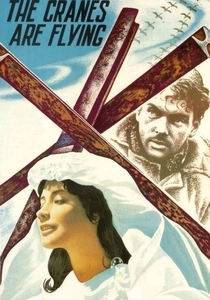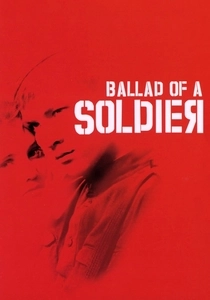Delving into the rich tapestry of Soviet cinema, we find a recurring theme that resonates with the human condition: betrayal. These films not only entertain but also offer profound insights into the complexities of loyalty, trust, and the consequences of betrayal. From historical dramas to psychological thrillers, this collection showcases the Soviet Union's cinematic exploration of this dark facet of human nature, providing viewers with a unique perspective on both personal and political betrayals.

The Meeting Place Cannot Be Changed (1979)
Description: Set in post-war Moscow, this crime drama features a detective who must navigate through a web of betrayal and corruption to solve a series of murders.
Fact: The series became a cultural phenomenon in the Soviet Union, with its theme song becoming an anthem of sorts.
 30 Days Free
30 Days Free 
The Cranes Are Flying (1957)
Description: This poignant war drama explores the betrayal of love and loyalty as a young woman's fiancé goes missing, leading her to make difficult choices.
Fact: The film won the Palme d'Or at the Cannes Film Festival, making it one of the most celebrated Soviet films internationally.
 30 Days Free
30 Days Free 
The Ballad of a Soldier (1959)
Description: While primarily a story of love and sacrifice, the film subtly touches on the betrayal of youth and innocence by war.
Fact: It was nominated for an Academy Award for Best Original Screenplay.
 30 Days Free
30 Days Free 
The Chairman (1964)
Description: This political drama examines the betrayal within the ranks of Soviet leadership, focusing on the struggle for power in a collective farm.
Fact: The film was directed by Aleksei Saltykov and was one of the first Soviet films to openly criticize the bureaucracy.
 30 Days Free
30 Days Free 
The Irony of Fate (1975)
Description: While not overtly about betrayal, this romantic comedy subtly explores the theme through misunderstandings and mistaken identities, leading to a comedic yet poignant betrayal of expectations.
Fact: It's a New Year's tradition in Russia to watch this film, and it was directed by Eldar Ryazanov, a master of Soviet comedy.
 30 Days Free
30 Days Free 
The Ascent (1977)
Description: This harrowing tale set during World War II explores the betrayal of two Soviet partisans by a local collaborator, highlighting the moral dilemmas faced in wartime.
Fact: The film was directed by Larisa Shepitko, who tragically died in a car accident shortly after its release. It won the Golden Bear at the Berlin International Film Festival.
 30 Days Free
30 Days Free 
The Shield and the Sword (1968)
Description: This spy drama delves into the world of espionage where betrayal is a constant threat, showcasing the life of a Soviet intelligence officer during World War II.
Fact: The series was based on the novel by Vadim Kozhevnikov and was one of the first Soviet TV series to gain international recognition.
 30 Days Free
30 Days Free 
The Fall of Berlin (1950)
Description: This epic war film portrays the betrayal of the German people by their leaders, culminating in the fall of Berlin to the Soviet forces.
Fact: It was one of the first Soviet films to be shown in the United States, albeit in a heavily edited version.
 30 Days Free
30 Days Free 
The Red Tent (1969)
Description: Based on the true story of the airship Italia, the film explores themes of loyalty and betrayal among the crew members stranded in the Arctic.
Fact: The film was a Soviet-Italian co-production, featuring international stars like Sean Connery.
 30 Days Free
30 Days Free 
The Star (1949)
Description: Set during the Great Patriotic War, this film portrays the betrayal of a Soviet reconnaissance group by a traitor, leading to a desperate fight for survival.
Fact: It was one of the first Soviet films to deal with the theme of betrayal in a military context.
 30 Days Free
30 Days Free 








